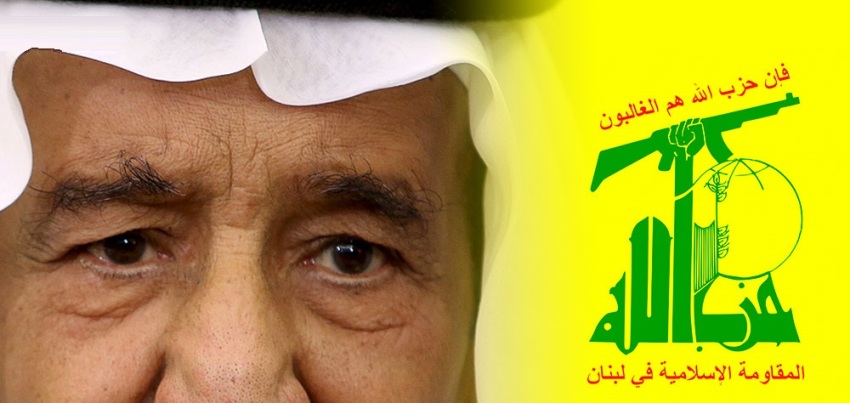AhlulBayt News Agency - The Saudi regime has observed foiling of its projects in Yemen, Iraq and specifically Syria. In all of these fields Riyadh has found a track of Lebanon’s Hezbollah. The Saudis’ climax of defeats appeared when the two Syrian towns of Nobul an Al Zahra were liberated from the grasp of the terrorists. Located in high regions of Syria, the two towns are overlooking the main road of Syrian Aleppo province to Turkey. In mid-2012, when the Riyadh and Ankara-backed militant groups were quickly capturing ground in western and northwestern Aleppo, Hezbollah has decided to deploy some of its forces to Nobul and Al Zahra. The presence of Hezbollah’s forces has played a vital role in strengthening a four-year resistance of the two Syrian towns in the face of an inclusive siege imposed by the terrorist groups, including the al-Nusra Front, an Al-Qaeda’s affiliate in Syria. Right after Russia’s military intervention in Syria, recapture of Nobul and Al Zahra, due to their strategic position, has been given a priority. Led by Hezbollah, the resistant forces finally managed to reach the two towns.
The triumph of Hezbollah has automatically brought under siege the terrorists-held areas in Aleppo’s west and northwest. The most active terror groups in these areas are al-Nusra Front and Ahrar ash-Sham, both of which united their forces earlier last year under a deal to form a coalition named Jaish al-Fatah. As the Hezbollah’s forces made fresh advances, the Saudi plans for Syria have been pushed closer to failure. Furious of ongoing defeats, Riyadh, just a day after liberation of Nobul and Al Zahra, announced that it was ready to send ground forces to Syria. The Saudis said that the objective behind possible forces deployment to Syria was to battle the terrorist group ISIS, but it was crystal clear for all that Saudi Arabia intended to save Al-Qaeda and its allies when they were pushed back from the areas under their control. As the time went by, nobody, even the Americans, took serious the Saudi claim that it was ready to deploy ground troops to Syria due to its weak performance in Yemen against which Saudi Arabia had launched an aggression.
Therefore, the Saudis have resorted to their last option which was activating a new front this time inside Lebanon to influence the battlefield developments in Syria. The activation of a new front in Lebanon for the first time was proposed by an institute close to the Israeli regime. Fabrice Balanche, a Syria geography expert, from the Washington Institute- the institute is famous for its close ties with the Zionist lobbies in the US- in an analysis published following Nobul and Al Zahra liberation has pointed to Saudi Arabia’s and Turkey’s limited choices, saying that another option for them is that they open a new front in northern Lebanon where many local Salafi groups as well as desperate Syrian refugees could participate in fighting. Such a move could directly jeopardize the Alawites’ hotbed in Tartus and Homs and the major road to the capital Damascus. In such a way, the Syrian government forces’ would be attacked from an external front, as the connection and supply lines from Lebanon to Syria would be cut off at the same time, according to Balanche. “The question is that do Riyadh and Ankara have the necessary will and means to do this risky job?” wonders Balanche.
Diplomatically and politically, the Saudis and Turks have proven that they were resolved not to spare any effort to hit Hezbollah and fan chaos in Lebanon. In late February 2016, the kingdom has said that it would take back its offer for paying Lebanon’s army $3 billion in aid, trying to paint Hezbollah as the major factor motivating this decision in a bid to help spark a wave of backlash at home against the resistant group. Taking a tough position against Hezbollah, the Lebanese Minister of Justice Ashraf Rifi immediately resigned after the event. Along with pro-Saudi media’s efforts, Riyadh has called the conditions in Lebanon critical, asking its nationals to refrain from travelling to Lebanon. The anti-Hezbollah media propaganda as well as practical steps experienced their peak when the Arab League and (P) GCC- (Persian) Gulf Cooperation Council- have blacklisted Hezbollah as a terrorist group.
In addition to open diplomatic measures, the reports indicate intensified Saudi security moves in Lebanon. In late February Beirut announced it had seized a ship carrying weapons to northern Lebanon. “The ship was loaded in Turkey,” the report added. The Stratfor, an American security and intelligence institute, has quoted a Lebanese politician as saying that Saudi Arabia aimed to form a militant group in the Syrian refugees’ camp in Lebanon to fight Hezbollah. During the past five years Lebanon has managed to weather Syria’s crisis repercussions. At the same time, the Saudis so far were not interested to directly engage Lebanon in the devastating Syrian conflict. However, now that they see everything is going wrong, they would not hesitate victimizing Beirut. Hezbollah has shown that it is in its best possible readiness and is aware of its enemies’ plots, however. Its forces, on March 12, in a preemptive move targeted positions of ISIS terrorists in Lebanon’s north, nipping the crisis in the bud. Hezbollah is expected to step up such anti-terror assaults
/129
source : Al Waqt News
Saturday
16 April 2016
4:14:55 AM
747608

The triumph of Hezbollah has automatically brought under siege the terrorists-held areas in Aleppo’s west and northwest.
